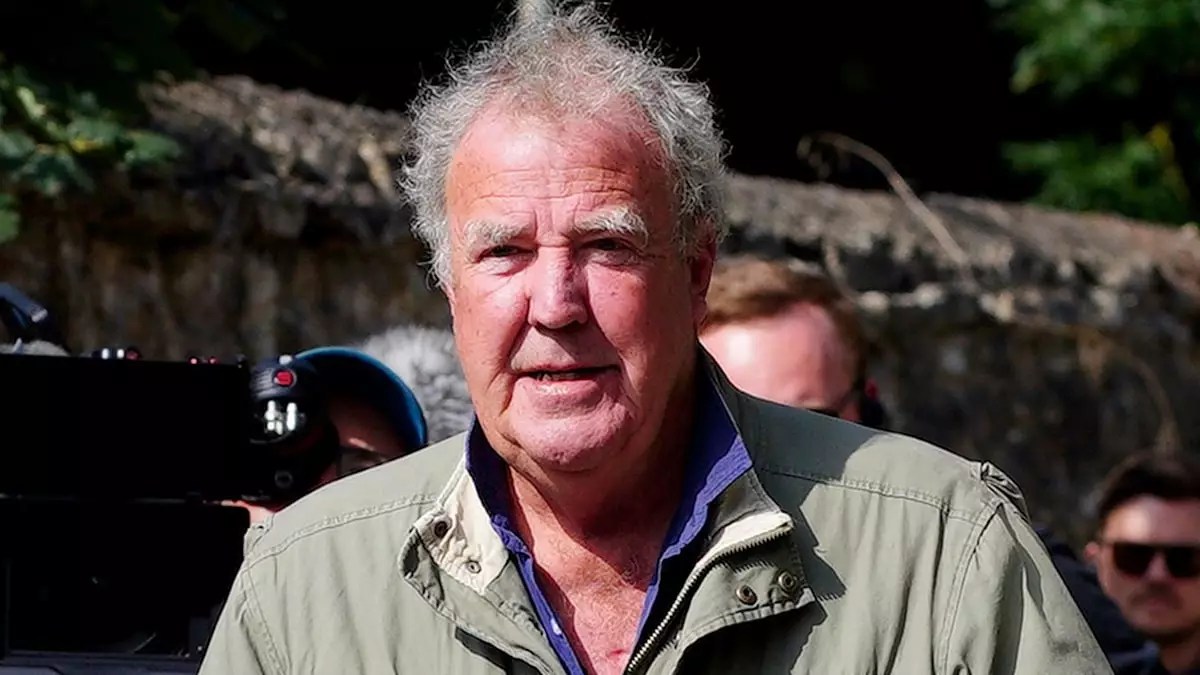The unpredictable whims of nature often lead to remarkable responses from those who find themselves in its path. Recently, Jeremy Clarkson, the famous broadcaster and host of “Clarkson’s Farm,” joined this discourse when he alerted his fans to the looming dangers of Storm Éowyn. While many took this storm seriously, he cleverly juxtaposed the gravity of his situation with a video that belied his words. As severe weather warnings cascaded throughout the UK, touching millions, Clarkson employed humor, perhaps as both a coping mechanism and a marketing strategy for his farm.
Storm Éowyn struck with ferocity, unleashing winds that reached catastrophic speeds and threatening lives across vast regions. Images of destruction and chaos flooded social media platforms as people shared real-time experiences of the tempest’s toll. Flights were grounded and entire areas faced hazardous conditions, pushing emergency services into overdrive. In this context, Clarkson’s message, “Pray for us,” appeared almost trivial. Yet, its undertone reflected a latent seriousness, indicative of the realities his farm faces while navigating these tumultuous weather events.
However, what ensued in the comments section illuminated a split reaction among his followers. While some laughed and engaged with his signature humor, others took exception to what they perceived as a lack of sensitivity regarding the dire situations faced by those genuinely suffering the storm’s effects. This divide suggested a moral questioning of the appropriateness of levity in the face of calamity.
As social media thrives on personal expression, Clarkson’s approach posed ethical queries regarding humor during crises. One commenter aptly expressed skepticism: “I’m sure people who are REALLY battling the storm will find this hilarious!” The contrasting perspectives on humor’s role during atmospheric horror highlighted a societal dilemma: when does humor become offensive?
For Clarkson, this tendency to juxtapose grim realities with satire is well-established. His followers often appreciate this facet, enabling a community built around relatable struggles and laughter. Yet, in moments when extreme weather wreaks havoc, this comedic lens can feel incompatible with the realities faced by many across the country. In the delicate dance between humor and empathy, Clarkson’s stylized wit must tread carefully, especially during moments of genuine peril.
As if navigating the storm wasn’t enough, Clarkson also found himself enmeshed in controversy regarding the pricing of products at his farm shop. When reports of exorbitantly priced items surfaced—most notably, a £200 pie—the backlash was swift and vociferous. The public’s perception of Clarkson as an out-of-touch millionaire manifested itself tangibly, putting him on the defensive.
In response to the scrutiny, Clarkson employed humor once again. He quipped on social media about the pie being available for purchase yet not suited for consumption, crafting a comical spin intended to debunk the serious criticisms levied against him. Yet, this defense further highlights Clarkson’s predicament: the duality of entrepreneur and entertainer. The emerging narrative about overpriced items in rural Britain contrasts sharply with the image of accessibility and homeliness that farmers traditionally cultivate.
The public backlash toward his pricing strategies also raises larger questions regarding the sustainability of farm-to-table initiatives in contemporary society. As even the most beloved celebrity farmers find themselves ensnared in scrutiny, it begs the question: at what point does trendy pricing compromise the accessibility and integrity of local food systems?
In an era where social media amplifies voices—both in laughter and outrage—Jeremy Clarkson exemplifies the delicate balance between comedy and crisis response. As Storm Éowyn echoes through the narratives of destruction, his humorous approach may provide levity in an otherwise heavy atmosphere. Yet, the backlash he faced can serve as a reminder that, in moments of true adversity, sensitivity often reigns supreme over satire. Clarkson provides us with a lens through which to examine the evolving landscape of public personas, showcasing the complexities of engaging with an audience that ranges from die-hard fans to concerned citizens all affected by the unpredictability of nature’s wrath.


Leave a Reply